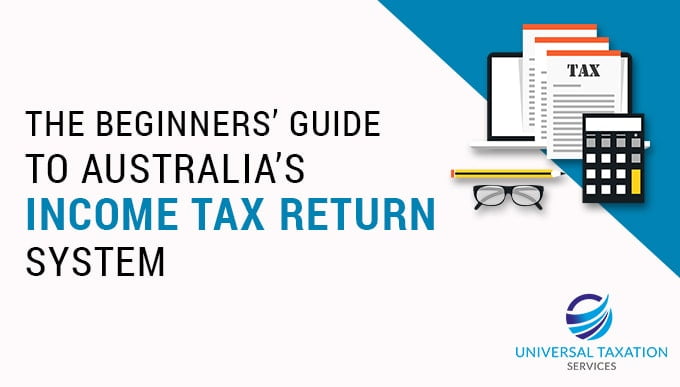What You Should Know About the Australian Tax Return Before Filing
Discovering the Advantages of Declaring a Tax Return: Optimize Your Tax Obligation Refund This Year
Submitting an income tax return is frequently viewed as a challenging task, yet it plays a crucial duty in improving your financial standing. By carefully reporting earnings and leveraging readily available deductions and credit histories, individuals can tap into the capacity for significant tax reimbursements. Adhering to tax obligation guidelines lessens the danger of fines. Recognizing the nuances of this process can expose forgot possibilities for financial savings. As we check out the various aspects of tax filing, it comes to be noticeable that the benefits prolong past simple conformity-- what strategies can you embrace to guarantee you are not leaving cash on the table?
Significance of Filing a Tax Return
Submitting an income tax return is a significant obligation for companies and individuals alike, as it offers both compliance and economic management functions. Sticking to tax obligation legislations is vital, as stopping working to submit can cause considerable charges, rate of interest fees, and prospective lawful effects. By sending an income tax return, individuals and organizations show their commitment to meeting their civic duties and add to the functioning of civil services.
Moreover, filing a Tax return supplies a chance for taxpayers to examine their monetary circumstance. It enables them to track earnings, costs, and general monetary health and wellness, which can notify future budgeting and investment choices. For lots of, tax returns are a portal to potential refunds, as overpayment of taxes throughout the year can be reclaimed, offering a much-needed economic increase.
Furthermore, the tax obligation return procedure can help with access to different monetary products and solutions. Lenders usually call for income tax return when identifying creditworthiness for mortgages or loans, making it necessary for individuals and organizations looking for financial aid. To conclude, filing a Tax return is not just a regulative responsibility; it is a substantial action in keeping economic integrity and exposing potential benefits.
Comprehending Tax Obligation Reductions
Tax reductions are frequently neglected yet play a crucial duty in reducing gross income and taking full advantage of potential reimbursements. Recognizing the numerous sorts of tax obligation deductions available can considerably affect your general tax responsibility. Reductions can be classified right into 2 primary kinds: conventional deductions and itemized deductions.
The requirement reduction is a fixed buck amount that taxpayers can subtract from their revenue, differing based on declaring standing. For several individuals, especially those without significant itemizable expenditures, taking the conventional deduction is useful. On the various other hand, itemized deductions permit taxpayers to checklist eligible costs, such as home mortgage interest, medical expenses, and charitable payments, potentially producing a greater deduction than the conventional option.
It's essential to keep thorough documents of all deductible expenditures throughout the year to guarantee you catch every eligible reduction. In addition, specific deductions might go through limitations or phase-outs based on earnings levels. Acquainting yourself with these subtleties can help you tactically plan your finances and optimize your income tax return. By leveraging and understanding tax deductions effectively, taxpayers can reduce their taxable earnings and enhance their general tax obligation reimbursement.

Discovering Tax Credit Ratings
Optimizing your tax obligation cost savings entails understanding the various sorts of tax credit histories readily available to you. Tax credit histories directly minimize your tax obligation responsibility buck for buck, making them extra helpful than deductions, which just reduced your gross income.
There are 2 primary groups of tax obligation credit scores: nonrefundable and refundable. Nonrefundable debts can decrease your tax responsibility to no yet will not cause a refund if the credit exceeds your tax obligation owed. Refundable credit scores, on the various other hand, can generate a refund even if you have no tax liability, making them particularly advantageous for lower-income taxpayers.
Typical tax obligation credit histories consist of the Earned Income Tax Credit (EITC), which sustains reduced to moderate-income functioning individuals and households, and the Kid Tax Obligation Debt, which supplies monetary alleviation for taxpayers with reliant youngsters. Education-related credits, such as the American Opportunity Credit Rating and the Life Time Learning Debt, help balance out the expenses of higher education.
Common Mistakes to Prevent
Navigating the intricacies of tax obligation returns can lead to a number of common mistakes that taxpayers must know. One significant mistake is stopping working to report all incomes. Even little amounts from sideline or freelance work have to be consisted of, as the internal revenue service receives duplicates of all earnings statements.
An additional constant mistake includes ignoring deductions or credit ratings for which one is eligible. Taxpayers must completely investigate possible reductions, such as for pupil loans or clinical costs, to prevent leaving cash on the table.
Furthermore, mistakes in personal information, such as Social Safety and security numbers or declaring standing, can postpone processing and refunds. It is crucial to confirm all information before submission to ensure accuracy.
Declaring late or disregarding to file entirely can also cause fines and missed out on chances for refunds. Taxpayers ought to be mindful of deadlines and strategy as necessary.
Finally, many people disregard to maintain thorough documents of costs and sustaining papers. Organized documentation is basic for confirming insurance claims and assisting in any future audits. By staying clear of these typical errors, taxpayers can streamline read this article their declaring process and boost their possible reimbursements.
Tips for Maximizing Your Refund

Next, consider adding to retirement accounts, such as an individual retirement account. Contributions made prior to the tax target date can be deducted, possibly enhancing your refund. Furthermore, if you are self-employed, make certain to account for business-related costs that can lower your gross income.
An additional important approach is to file your return electronically. E-filing not only accelerates the handling time but likewise lessens mistakes that can accompany paper entries. In addition, validate that you pick the appropriate filing status; this can significantly affect your tax obligation price and eligibility for specific credits.
Last but Going Here not least, keep precise documents throughout the year. Organizing invoices and economic papers can streamline the declaring procedure and aid you identify possible deductions that you may or else miss. By taking these steps, you position yourself to obtain the optimum reimbursement feasible.
Verdict

By methodically reporting revenue and leveraging readily available deductions and credit scores, people can tap into the capacity for significant tax obligation reimbursements. For lots of, tax returns are an entrance to possible refunds, as overpayment of tax obligations throughout the year can be reclaimed, supplying a much-needed financial increase.
Comprehending the numerous kinds of tax obligation deductions offered can substantially impact your overall tax responsibility. Online tax return Australia. By leveraging and comprehending tax obligation reductions efficiently, taxpayers can minimize their taxed earnings and improve their total tax reimbursement
